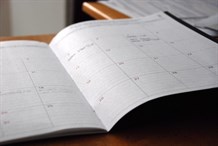Depression
Depression is more common than you might think, but it can be treated...
- 1 in 6 people will experience depression at some point in their lives.
- As many as 3 in 4 cases where someone is experiencing depression, it is neither recognised nor treated
- The World Health Organisation estimates that by 2020, depression will be second only to chronic heart disease as an international health problem.
However, more than 80% of people experiencing depression can be helped with the appropriate treatment.
"The stigma and lack of accurate information surrounding depression continues to prevent people from seeking and finding appropriate and vital help when it is required. Early intervention and information are crucial in enabling those affected by depression to recover quickly and – critically – in preventing further episodes." - Depression Alliance UK
Coping with Depression
If you've been feeling depressed for a few weeks or more, make an appointment to see your GP. They can talk to you about your symptoms and the treatments that could help you feel better.
See the links on the right hand side of this page for more information about depression, symptoms and treatments.
It can also be helpful to try some coping techniques like the ones below.
Be more active
Don't withdraw from life. Socialising can improve your mood. Keeping in touch with friends and family means you have someone to talk to when you feel low. Take up some form of exercise. There's evidence that exercise can help lift your mood. If you haven't exercised for a while, start gently by walking for 20 minutes every day.
Face your fears
Don't avoid the things you find difficult. When people feel low or anxious, they sometimes avoid talking to other people. Some people can lose their confidence about driving or travelling. If this starts to happen, facing up to these situations will help them become easier.
 Don't drink too much alcohol
Don't drink too much alcohol
For some people, alcohol can become a problem. You may drink more than usual as a way of coping with or hiding your emotions, or just to fill time. But alcohol won't help you solve your problems. It could also make you feel more depressed.
 Have a routine
Have a routine
When people feel down, they can get into poor sleep patterns, staying up late and sleeping during the day. Try to get up at your normal time and stick to your routine as much as possible. Not having a routine can affect your eating. You may stop cooking regular meals, eat snacks throughout the day instead or miss breakfast because you're still in bed.
Seeking Help
If you start to feel like you can't cope, life is becoming very difficult or your life isn't worth living, get help straight away. These are signs that you need to talk to someone. Please see your GP.
NHS Choices have developed a number of tools helping to recognise a variety of health problems. Visit the related links for a tool to self-assess your feelings and identify problems that could be symptomatic of depression.
Alternative Support
For confidential, non-judgmental emotional support you can also contact help-lines, such as:
Telephone:+44 1624 663399
Email:Send Email




